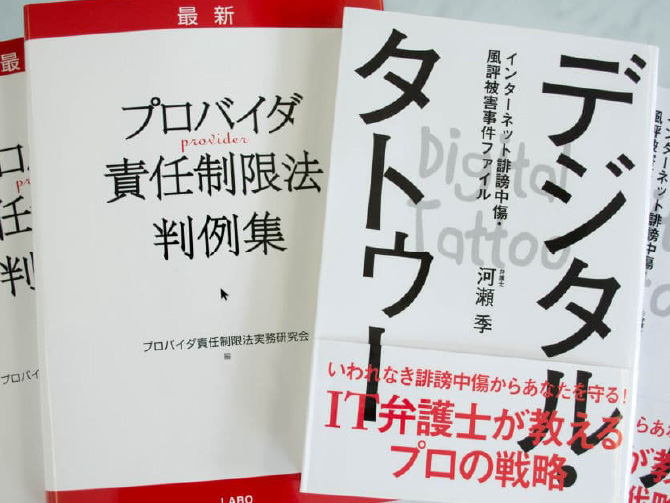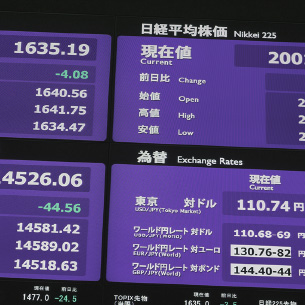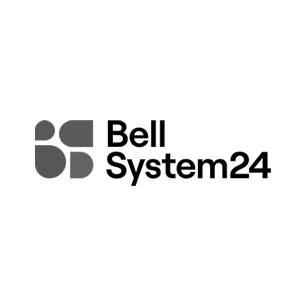
ID of the Defamatory Statement
Under Japanese law, if a company or individual suffers defamation or privacy infringement by an anonymous user on the internet, it is possible to identify the anonymous poster through various legal procedures facilitated by the court. While there are instances of defamation by anonymous users in the Japanese online space, it is possible to identify the poster and pursue a claim for damages through an attorney.
If you have been subjected to defamation by an anonymous user on the internet and wish to pursue a claim for damages, it is necessary to first identify the identity of that user. Japanese law provides legal procedures for the identification of anonymous users on the internet.
MONOLITH LAW OFFICE is a Japanese law firm specializing in internet-related matters. We have been engaged in the identification of defamatory posters based on requests from various clients, including domestic listed companies, prominent executives, and influential individuals. With our extensive experience and track record, we are equipped to handle disputes in the Japanese online space.
TOPICS

Identification of the Defamatory Statement
Under Japanese law, it is possible to pursue legal action to identify individuals responsible for illegal postings, including defamatory statements, through a court procedure. If your company is targeted by anonymous internet users who engage in attacks on the Japanese internet, it may be possible to disclose the identity, including the name and address, of the anonymous user by consulting with a highly specialized attorney. Once the identity is revealed, you may have the opportunity to file a claim for damages against the internet user. It is crucial to work with an experienced attorney who can guide you through the legal process and protect your company’s interests.
Examples of Identifications by Our Firm: Target Sites
MONOLITH LAW OFFICE has a track record and expertise in identifying the authors of defamatory posts on various websites, including but not limited to cases of defamation, privacy infringement, copyright infringement, and impersonation. We have successfully assisted clients in identifying the authors behind such posts, utilizing our experience and knowledge in the field.
2channel, 5channel, Twitter, Facebook, Instagram, Google Maps (My Business), Yahoo! Finance, Food Log, Amazon customer reviews, Girls Channel, Bakusai, Mansion Community, Hostlove, and various other bulletin board sites. Yahoo! Chiebukuro, NAVER summary, phone number search (jpnumber, etc.), Livedoor Blog, FC2 Blog, Ameba Blog, Hatena Blog, etc. Other various blog sites, YouTube, Nico Nico Douga, FC2 Video, and other video sites. MILKCAFE, openwork, Lighthouse (former Kaisha’s Reputation), other job review sites, other original domain sites.
Examples of Support Provided by MONOLITH LAW OFFICE

TSE listed company
We have identified the authors behind persistent posts spreading false information, such as internal scandals, on platforms like Yahoo! Finance and Google Reviews.

Prominent executive
We have carried out author identification for accounts on Twitter that engage in defamation, impersonation, and derogatory posts directed towards individual executives.

Business corporation
We have conducted author identification for defamatory posts targeting specific executives on anonymous message boards like 5channel and Google Reviews.

Prominent YouTuber
We have assisted in author identification for cases involving personal information leaks and defamatory comments made on other YouTubers’ videos, personal blogs, and other platforms.
Author identification requires highly specialized expertise, encompassing strategic planning and specific operational tasks.
Procedures for Identifying Authors under Japanese Law
In Japan, there are various legal procedures available to identify the authors of defamatory online posts and combat cyber defamation. As legal professionals, we employ these procedures selectively and in combination to achieve author identification. While providing a comprehensive explanation on this page is challenging due to the highly specialized nature of these procedures, we will provide an overview.
A: Request for Disclosure (Provisional Disposition)
This expedited interim measure allows us to request website operators or hosting server administrators to disclose the IP address of the poster, without resorting to formal litigation. However, it is important to note that some websites may provide IP address disclosure voluntarily through informal negotiations without the need for this procedure. Making the right judgment in such cases requires the experience and expertise of knowledgeable lawyers.
B: Prohibit Deletion of Information
By analyzing the disclosed IP address obtained through Procedure A, it is possible to identify the internet service provider (ISP) used by the anonymous user. In Procedure C, it is crucial to request the ISP not to delete the sender information (log data related to the user’s internet connection) to preserve evidence.
C: Request for Disclosure (Lawsuit)
This procedure involves suing the identified ISP as a defendant to seek the disclosure of the anonymous user’s address and name. In the case of websites where the anonymous user registered a phone number, this procedure can be used against the website operator to request the disclosure of that phone number. Prompt interim measures cannot be used in this procedure, and formal litigation is required according to Japanese legal precedents.
D: Disclosure Order
(the 2022 Amendment)This newly introduced legal framework combines Procedures A, B, and C into a single procedure, enabling the implementation of all steps (A, B, and C) within a shorter timeframe. This procedure utilizes an expedited mechanism. Currently, this procedure is considered the general principle for author identification. However, there are exceptions, such as websites where only a phone number is registered without an IP address or cases where disclosure of the IP address can be achieved through voluntary negotiations. The expertise and know-how of legal professionals are essential in handling these exceptions.
E: Inquiry Procedure through Bar Association
In cases where the phone number of the poster becomes known during the aforementioned procedures, it is necessary to request the disclosure of the address or name of the person using that phone number from the telecommunications carrier. In Japan, mobile phone carriers have a practice of providing information disclosure when a lawyer makes a proper inquiry through their affiliated bar association.
Identifying the authors of defamatory posts in accordance with Japanese law is indeed a highly complex and specialized area. If you have any questions or concerns, including feasibility and cost aspects, please don’t hesitate to contact us. We are here to assist you and provide the necessary guidance.

Publications as a Lawyer Specializing in Mitigating Reputational Damage
Participated in writing “Judicial Precedents of the Provider Liability Limitation Act,” a collection of judicial precedents on reputational damage countermeasures, as part of the Practical Study Group on the Provider Liability Limitation Act formed by attorneys.
Published “Digital Tattoo – Internet Slander and Reputational Damage Case File” from Jiyuukokumin-sha, the publisher of “Gendai Yogo no Kihonjitsu” (Basic Knowledge of Modern Terminology), and was in charge of drafting the NHK Saturday drama “Digital Tattoo” based on this publication record.
MONOLITH LAW MAGAZINE
Fee Structure
Hourly Rate
$300per hourIn certain instances, we may consider accepting a dispute or lawsuit with an initiation fee and a contingency fee. For more details, please feel free to contact us.Drafting Contracts
from$500to $2,000 or moreThe pricing structure is subject to variation based on the type and quantity of contracts. We are pleased to offer a preliminary estimate upon inquiry, thereby encouraging you to reach out to us for further details.Other Services
Contact UsWe offer a wide range of services including company formation, contract review, legal opinion, case review, or research letter. Should you have any inquiries or concerns, we cordially invite you to contact us and our knowledgeable team will be happy to assist you.





















